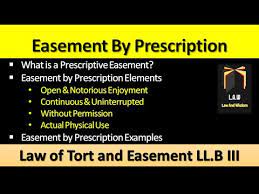If you have a mortgage, you will be unable to consummate your deal until the test and title search are done. After the transaction is finished, you will receive the property deed and title insurance policy. So, how long does it take to clear a title? The entire process of a title search for a property takes about two weeks. However, depending on your transaction and property type, this can vary greatly. Property title search timelines, like many other aspects of the home buying process, can vary. Some property title searches can be done in a matter of hours, while others might take up to two weeks.
What Is a Title Search?
When you acquire a house from a seller, you probably presume that the seller has the legal right to sell the house. However, if someone else with a claim or lien on the property comes up on the doorstep, that assumption can have terrible implications.
A property title search looks through public records on the property to determine who the rightful legal owner is. The title search should also indicate whether the property has any claims or liens that could impede your purchase.
What Is the Purpose of a Title Search?
Discovering who owns the property you wish to purchase is merely the first step. For starters, the present owner may be unaware of an old claim against the property’s title. Second, any prior owner’s debts can come back to haunt you since mortgage liens and other debts, as well as easements and restrictive covenants, follow the property, not the owner.
If you neglect a title search – or if the title search fails to find it – encumbrances such as unpaid property taxes, homeowners association (HOA) fees, and invoices for past home upgrades may become your responsibility. That is why, as part of the mortgage underwriting process, mortgage lenders demand both title searches and title insurance.
How Do Title Searches Determine Who Owns What?
A title search examines the public documents for the property in question. An attorney or title business would typically use a range of legal documents to establish a chain of title and authenticate that the seller is the true owner. Aside from that, the title search will uncover any other financial and/or legal claims against the property.
#1. The Procedure
An abstractor is an individual who conducts the title search. The abstractor examines public records and works to compile all essential information and legal papers regarding the property that they can uncover in order to establish an abstract of the title. The abstract of the title will comprise a chronological listing of all accessible papers and transactions pertaining to the parcel of real estate in question.
The abstract could include information about the current and prior owners. It could also contain previous property surveys, any easements that span the property, and any relevant wills and lawsuits involving the property.
#2. The Results
A title search can reveal any financial decisions made against the owner of that property title that may have an impact on you financially in the future. Outstanding property taxes, liens against the residence, and easements of any type are a few instances of these title issues. If you have any outstanding claims on your property, it could spell disaster for your happily-ever-after in your new house.
It is vital that your property title search reveals clear and unfettered ownership of the property. Otherwise, you may be in for a nasty surprise later on. Fortunately, there are measures to reduce the chance of a claim on your new property’s title.
You can, for example, obtain title insurance or a warranty of title. A one-time purchase of a title insurance policy can protect your own claim to the property. So, it’s worth considering the cost (which is typically 0.5–1.0 percent of the purchase price and is typically included in your closing fees).
How Long Does a Title Search Take?
The length of a title search is mostly determined by the intricacy of the transaction and the age of the residence. While a simple transaction, such as buying a new property, may take only a few hours, a title search can take as long as 10 to 14 days. The older the house, the more owners it has had and the more transactions it has seen. So, the longer the title search takes, the more information the company or attorney will need to comb through.
What is the Cost of a Title Search?
A title search might cost anywhere from $75 to $200, depending on the state. This is often the cost of the settlement services charge, but there is also the title insurance premium, which is paid by the buyer to assure that they are now the legal owner of the property. This can range between 0.5 and 1% of the buying price.
The title search report should provide you with a full review of the papers related to the property and flag any issues that may arise during the property purchase. This provides a buyer with additional information that may be critical to their property acquisition.
Who is Responsible for Completing the Title Search?
The title search will be performed by an attorney or a title business. The process varies to some extent depending on the state. However, the attorney or title business will normally conduct their research at the county courthouse, recorder’s office, and county assessor’s office. Many of these records are now available online and are not difficult to locate.
The title search will seek information in the following areas:
- Land records for counties
- Liens on the property (both federal and state)
- Liens for construction
- Judgments
- Property maps
- Divorce
- Bankruptcy
- Probate proceedings
- Deeds
Title searches frequently contain information on the property’s mortgage, taxes, and any other issues that may arise. All of the information is integrated, compiled, and presented as an abstract report.
When is a title search performed when purchasing a home?
Before a loan is granted, either the lender or the buyer does a title search. Title searches are typically performed during the closing process after the buyer has placed an offer on the property after the seller has accepted the offer, but before the buyer takes possession of the property. Lenders frequently demand a title search before they can authorize a loan.
Title searches are also frequently performed for real estate investors who have been offered a property at a reduced price. This is done to ensure that the discount does not come with an unpleasant surprise associated with the property.
What happens next following the title search?
Following the completion of the title search, the buyer will be given a preliminary title report, which will show whether there are any issues with the property’s title. This will provide the buyer a solid indication of whether or not they want to forward with the closing procedure. Some issues can be resolved, while others may necessitate the termination of the contract.
If the title search comes up clear or the buyer decides to proceed, the lender will need to accept the loan and the buyer and seller will need to agree on how to proceed if there are any difficulties with the title. Following that, the closing procedure can continue, and the property will change hands.
What if Problems Arise During the Title Search?
A title search may turn up one or more issues with the title. Here are some typical title difficulties, as well as solutions for resolving them:
#1. A break in the chain of title can occur when there is a missing deed in the chain.
“If party A transfers property to party B and subsequently party C transfers the same property to party D, we are missing the link between parties B and C,” Stitgen explains. “This can be handled by acquiring a deed from party B to party C or party B to party D.”
#2. Incomplete or incorrect legal description on the deed:
These errors are prevalent and depending on the nature of the inaccurate information, procuring a corrected deed from the same parties to repair the problem is usually required. “In rare situations, an affidavit from a scrivener, preferably the party who prepared or recorded the document, or someone with knowledge of the transaction, may suffice to fix the problem,” Stitgen writes, “but only if the mistake is non-material and does not modify the character of the legal description.”
#3. Potentially missing interests:
If the title chain includes a transfer through an estate, it is critical to ensure that any heirs have legally abandoned their rights to the property. “If this has not been done,” Stitgen says, “it will be essential to get [quitclaim] deeds from these persons surrendering their rights.”
#4. Open security deeds:
The title search may reveal an unreleased security deed from the current or previous owner. “If so, further investigation is required to ascertain whether this was left open in error.” If it was, you must acquire a release from the holder of the security deed,” Stitgen recommends.
Liens are legal rights or claims on property that are typically used as collateral to repay a debt. A title search will frequently reveal potential liens against a property, such as mechanic’s liens for overdue house upgrades. These will necessitate additional investigation to determine whether the lien has expired, whether it is possibly not for a party in the chain of title, or whether it is a legal claim that must be paid.
#5. Unpaid property taxes:
Another sort of lien, any unpaid property or “ad valorem” taxes based on the assessed value of the residence must be paid before the title is transferred to the new owner. If the tax lien certificate has been sold, it must be purchased from the holder.
According to Hollander, if one of these faults or another is discovered, homebuyers generally have three alternatives, depending on what is authorized in their purchase contract:
- Request that the seller remedies the issue prior to closing.
- Request that the seller compensate the buyer for the expense of repairing the problem.
- They can walk away from the deal and get their deposit back.
Conclusion
Consider a house title search to be a background check on a job applicant. Before purchasing the residence, the search will reveal any recorded claims or difficulties. It will guarantee that there are no claims, liens, or concerns with the residence that could lead to another person or entity claiming ownership.
It’s also a good idea to purchase title insurance when purchasing a home. Title insurance will protect you from any potential title issues. If the title business overlooks something during the search, title insurance will protect you, the buyer, and assure that the title firm will handle any difficulties that arise. Title insurance is a one-time fee paid at the time of closing that protects you as the homeowner.
Purchasing a home is an exciting process, and you probably want to move into your new home as soon as possible. However, you do not want to rush through the title search procedure. While it may take several weeks, it will ensure that you are safeguarded and in good health for decades to come.
Related Articles
- HOW TO BUY A HOUSE IN CALIFORNIA In 2022 (Detailed Guide & Tips)
- RENTING A HOUSE VS. APARTMENT: How to Make a Choice!!! (Updated)
- How To Buy A House In Texas In 2022: Step By Step Guide
- WHAT IS AN ESTATE? Types, Planning, and Management
- Managing real estate: Why you need a Professional
- FIRST TIME HOME BUYER ILLINOIS: Programs, Loans & Grants Assistance In 2022



